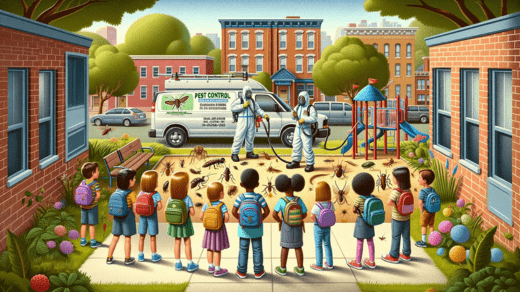Has Climate Change Impacted Pest Infestations in Portland?
Currently, climate change is one of the most pressing issues on humanity as a whole. How we deal with it quite literally impacts our future, and the future of the human race. However, such an approach ignores the fact that climate change has already begun to impact us – rising temperatures are just the beginning.
An impact that can be seen more ‘close to home’, is pests. Specifically, climate change has dramatically shifted how pests behave and infest. It might even hold a clue to why pest infestations have increased in modern times – an area of deep interest for entomologists all around the world!
According to a renowned Portland exterminator, the changing climate is one of the primary factors contributing to this rise. Warmer temperatures, altered precipitation patterns, and shifting seasonal cycles have created a more hospitable environment for pests, leading to an increase in their numbers and activity. Understanding this provides some necessary clues to dealing with pest infestations…
More Accessible Locations Due to Warmth
One of the most direct effects of climate change is the increase in average temperatures. Warmer weather expands the range of habitats suitable for pests, allowing them to thrive in areas that were previously too cold. In Portland, milder winters and hotter summers provide ideal conditions for pests such as ants, termites, and rodents to move into new areas, including urban and suburban environments. The extended warm seasons also mean that pests can remain active for longer periods, increasing the likelihood of infestations.
Altered and Faster Life Cycles
Climate change also affects the life cycles of pests, often accelerating their development and reproduction rates. Higher temperatures can shorten the time it takes for pests to mature from larvae to adults, leading to more generations being produced in a single season. This rapid reproduction cycle can result in a sudden surge in pest populations, making it challenging to control infestations effectively.
Increased Activity
In addition to expanding habitats and faster life cycles, climate change also leads to increased pest activity. Pests become more active as temperatures rise, increasing their foraging and breeding behaviors. This heightened activity can lead to more frequent and severe infestations, as pests are more likely to enter homes and businesses in search of food and shelter.
As such, climate change has had an undeniable impact on pest infestations. It has made pests more common and much more challenging to control. Pest control professionals have especially identified such changes with the help of entomologists. However, this same team has also figured out how to negate climate change’s impact on pests!
No matter how a pest behaves, or how bolder and faster it becomes due to the heat, professionals have all the resources they need to tackle the challenge. The first of course is the research-backed knowledge of entomologists. This equips professionals with the knowledge of what to expect when tracking pests. Secondly, strategic understanding of common pest locations can help focus all pest control activities to that area. This ensures that pests are truly and completely wiped out, without any chance of resurfacing!

